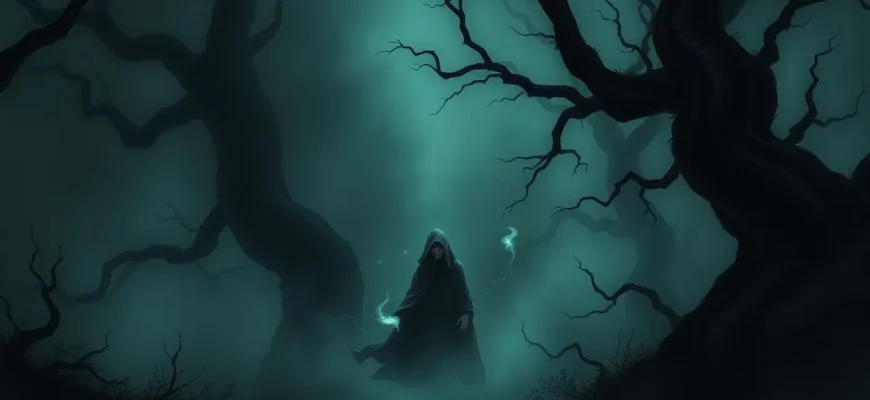Asian cinema has long been a treasure trove for horror aficionados, offering unique storytelling, cultural depth, and spine-chilling scares. This curated list showcases some of the finest Asian horror films that have not only terrified audiences but also left a lasting impact on the genre. From ghostly tales to psychological thrillers, these films are perfect for those looking to delve into the eerie and the unknown.

Ju-on: The Grudge (2002)
Description: This Japanese film tells the story of a curse that haunts a house, where anyone who enters is doomed. Its non-linear narrative and relentless terror have made it a horror staple.
Fact: The film spawned numerous sequels and an American remake, but the original's eerie atmosphere is unparalleled.
 Watch Now
Watch Now 
Dark Water (2002)
Description: A psychological horror about a woman and her daughter who move into an apartment with a dark history, leading to unsettling supernatural occurrences. Its slow build-up and emotional depth set it apart.
Fact: The film was remade in Hollywood in 2005, but the original Japanese version is praised for its subtlety and emotional resonance.
 30 Days Free
30 Days Free 
Shutter (2004)
Description: A Thai film where a photographer and his girlfriend start seeing ghostly figures in their photographs, leading to a chilling discovery. Its innovative use of photography as a horror element is particularly memorable.
Fact: The film was remade in Hollywood in 2008, but the original Thai version is considered superior for its atmosphere and cultural nuances.
 30 Days Free
30 Days Free 
The Ring (1998)
Description: This Japanese horror classic redefined the genre with its story of a cursed videotape that kills viewers seven days after watching. Its eerie imagery and psychological tension make it a must-watch.
Fact: The film was remade in Hollywood in 2002, but the original remains a benchmark for horror. It was also inspired by a novel by Koji Suzuki.
 30 Days Free
30 Days Free 
A Tale of Two Sisters (2003)
Description: This South Korean film blends family drama with horror, exploring the psychological trauma of two sisters in a haunted house. Its twist ending and visual storytelling are critically acclaimed.
Fact: It was inspired by a Korean folk tale and has been remade in several countries, including the U.S. as "The Uninvited."
 30 Days Free
30 Days Free 
Pulse (2001)
Description: A chilling tale where the internet becomes a portal for the dead to enter the world of the living, leading to a haunting exploration of isolation and technology.
Fact: The film was remade in Hollywood in 2006, but the original's eerie atmosphere and thematic depth are unmatched.
 30 Days Free
30 Days Free 
The Eye (2002)
Description: A Hong Kong film where a blind woman regains her sight through a cornea transplant, only to start seeing disturbing visions. Its blend of supernatural horror with medical drama is compelling.
Fact: It was remade in Hollywood in 2008, but the original's cultural context and visual storytelling are more impactful.
 30 Days Free
30 Days Free 
Audition (1999)
Description: This Japanese film starts as a romantic drama but quickly turns into a psychological horror, exploring themes of loneliness, obsession, and revenge.
Fact: The film was directed by Takashi Miike, known for his extreme and boundary-pushing work in cinema.
 30 Days Free
30 Days Free 
The Wailing (2016)
Description: A South Korean film that mixes horror with mystery, following a policeman investigating a series of bizarre murders linked to a mysterious stranger. Its complex narrative and folk horror elements are gripping.
Fact: The film was a box office hit in South Korea and has been praised for its genre-blending approach.
 30 Days Free
30 Days Free 
The Maid (2005)
Description: A Filipino horror film about a maid who discovers dark secrets in the house she works in, leading to supernatural events. Its cultural context and suspenseful storytelling make it memorable.
Fact: The film was a commercial success in the Philippines and has been noted for its portrayal of Filipino folklore.
 30 Days Free
30 Days Free 








